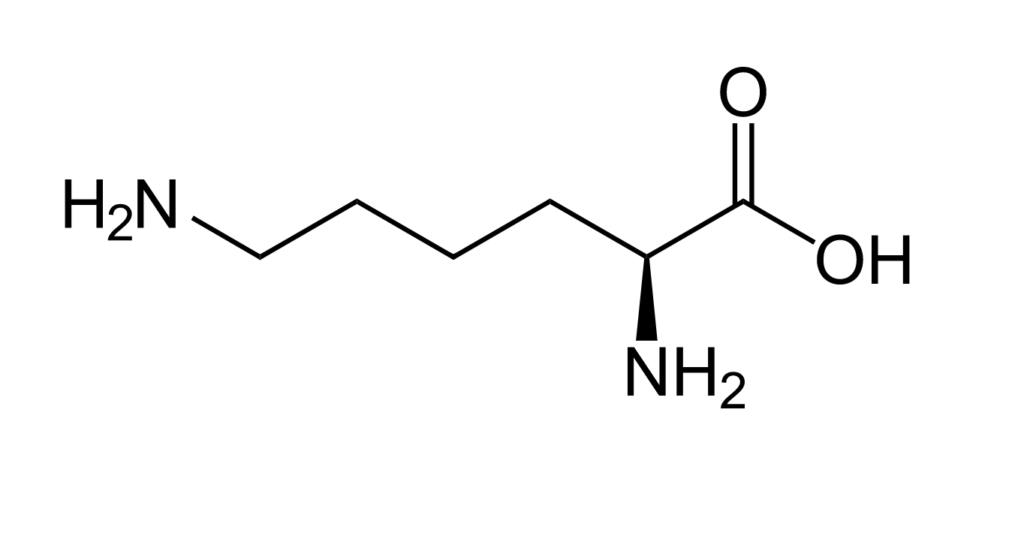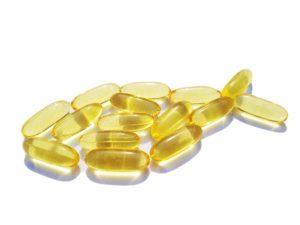L-Lysine: A Potential Treatment for Anxiety

Stress and anxiety are common problems. In fact, anxiety disorders are the most common mental health diagnoses, with estimates suggesting that 7.3% of individuals struggle with a diagnosable anxiety condition worldwide (Baxter 2013). And anxiety disorders can have a significant negative impact on a person’s wellbeing. They can also be a challenging condition to treat, as standard treatments, like antidepressants, often have concerning side effects or leave residual symptoms. When antidepressants aren’t effective, benzodiazepines are often prescribed. Unfortunately, benzodiazepines, like Xanax and Valium, can make anxiety worse long term and have the potential for addiction.
L-Lysine
Amino acids are the core building blocks of protein. While the amino acid gamma aminobutyric acid (GABA) is often touted as a potential treatment for anxiety, evidence suggests that another amino acid, L-lysine, may also have a beneficial effect. L-lysine is one of the core, essential amino acids. In other words, you have to consume L-lysine in your diet on a regular basis to maintain health.
Early animal data suggests that L-lysine may have anxiety-reducing effects by reducing serotonin breakdown (Jalal 2022), by blocking specific serotonin receptors along the gastrointestinal tract (Smriga 2003) and by increasing GABA-receptor activity (Chang 1995). Human data also suggests reductions in both cortisol and the activation of the stress response (Smriga 2007).
Human Trials
As early as 1981, the effects of L-lysine as a possible treatment to enhance sedative effects to promote sleep was discovered (Chang 1981). Other research found that animals fed a diet deficient in L-lysine have increased anxiety (Smriga 2002). Humans that consume a diet with wheat as the main staple food are generally deficient in L-lysine. A study in humans relying on wheat as a staple food had L-lysine added to the diet to ensure adequate lysine consumption. With the addition, several markers of anxiety were improved. Cortisol responses were reduced in women, while activation of the stress response in general was reduced in men. Chronic anxiety levels were also reduced in men with increased L-lysine (Smriga 2004).
In people with high anxiety levels, the administration of L-lysine (with L-arginine) for ten days appeared to “normalize” the stress response as compared to individuals without chronic anxiety (Daniela 2005). Based on the results, the same research group tested the amino acid combination on Japanese adults. They again found reductions in both current anxiety levels and in the levels of “trait anxiety” in anxious individuals. Improvements were noted with just one week of supplementation (Smriga 2007).
Of interest, a study that used a lower dose of L-lysine showed benefits on gastrointestinal health and immune function in deficient individuals. However, no improvements in anxiety were noted with the lower dose (Ghosh 2010).
Safety
Due to a number of concerns that have been raised online for supplemental L-lysine, it’s worth carefully reviewing the research and what we know about L-lysine supplementation and safety. The majority of the concern around L-lysine appears to come from its effects on decreasing the availability of a separate amino acid, L-arginine. Animal studies have found that by adding equal amounts of L-arginine to L-lysine, the problems with L-lysine can typically be reduced or eliminated.
Heart Health
While animal studies initially identified the anxiety-reducing properties of L-lysine, research in rabbits suggested that increased L-lysine could cause heart disease. In rabbits fed higher levels of L-lysine by supplementation or dietary manipulation, increased hardening of the arteries occurred (Kritchevsky 1979). While bad for rabbits, studies in other animals and humans have not confirmed the results. Higher levels of L-lysine typically occur in meat and animal products, foods that are not a normal part of a rabbit’s diet, which could partly explain the findings.
One study in rats found no consistent effects of L-lysine on cholesterol or blood sugar (Hevia 1980). Conversely, L-lysine’s effects varied significantly based on other dietary factors. A separate study in rats also found no effects of added L-lysine on cholesterol levels (Nagata 1981). A human trial of L-lysine with vitamin C and zinc, found reduced cholesterol and improved blood sugar handling, which hypothetically, should significantly reduce the risk of heart disease (Ranasinghe 2020).
Fatty Liver Disease and Gallstones
Studies in hamsters and rabbits found that added L-lysine increased the risk for gallstones (Klurfeld 1987, Ozben 1989). In hamsters, the addition of L-lysine was able to increase gallstone formation, while L-arginine was able to protect from the added risk. Similarly in rabbits, when L-lysine was chemically removed from dietary proteins, gallstone production was also reduced.
In rats, while the data from the research is somewhat variable, research has found increased fatty liver disease with excess dietary L-lysine. However, the research again shows that the condition can be prevented by the addition of L-arginine (Hevia 1980). A separate study showing abnormal cholesterol parameters in rats also found that the addition of L-arginine normalized the negative effects seen with excess L-lysine (Xiao 2019).
Kidney Disease
There is a case report of a woman who developed kidney failure while taking three grams a day of L-lysine to prevent herpes outbreaks (Lo 1996). The study authors hypothesize a link with L-lysine, however the woman was known to take large doses of ibuprofen for menstrual pain, had a history of amphetamine, cocaine, heroin and alcohol use and also had hepatitis C. All of these additional factors could easily have caused her kidney failure. While studies in rats have found that exceedingly high doses of L-lysine can cause kidney failure, the human equivalent dose would be 133 grams given intravenously, well above any reasonable oral dose (Malis 1984). While these exceedingly high doses of L-lysine can damage the kidneys, even the authors acknowledge that their case study is not definitive in proving that three grams of L-lysine a day can cause kidney problems.
Human Trials Establishing Safety
Human trials appear to establish reasonable safety of oral L-lysine. As previously mentioned, a human trial using L-lysine at three grams a day, combined with vitamin C and zinc, found benefits for prediabetes. On average, blood sugar levels were normalized and cholesterol levels were reduced (Ranasinghe 2020). The study also found no evidence of kidney or liver problems with L-lysine supplementation over the six-month trial.
Higher doses of L-lysine at six grams per day for eight weeks have been used in patients with schizophrenia and were also found to be well tolerated without major adverse events (Zeinoddini 2014). A separate study on preventing herpes outbreaks gave patients three grams of lysine for six months and also found the treatment to be well tolerated (Griffith 1998).
Based on the evidence, it appears likely that L-lysine, taken in reasonable amounts, is safe as a supplement. Dosing of three grams for six months and dosing of six grams for two months did not cause significant concerns. In cases where individuals want to be overly cautious, combining L-lysine with equal amounts of L-arginine should further mitigate any potential risks.
Conclusion
While more human trials are needed, L-lysine may have benefits for reducing stress and anxiety. Considering the need for additional effective treatments for anxiety disorders, additional research would be helpful to better understand effective dosing regimens and to better establish long-term safety of L-lysine supplementation.



